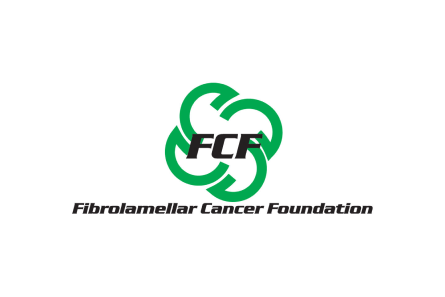The Fibrolamellar Cancer Foundation
Cycle 1
Fibrolamellar carcinoma (FLC), also known as fibrolamellar hepatocellular carcinoma, is a rare liver cancer that primarily occurs in adolescents and young adults who have no history of liver disease. In the early stages of the disease, affected patients often have no symptoms, so by the time the cancer is found, it may have already spread beyond the liver. When symptoms develop, they may include abdominal pain, weight loss, and malaise.
Last updated May 2024
Clinical
Disease Class
Rare abdominal surgical diseases
Rare gastroenterological diseases
Rare hepatic diseases
Body Systems
Digestive
Metabolic
Organs
Bones
Brain
Liver
Lungs
Lymph fluid, nodes, ducts, vessels
Genes
DNAJB1-PRKACA
Type of Inheritance
Not specified / unknown
Disease Mechanism(s)
Mitochondrial dysfunction
Pathogenic mutation
Age of Onset
Adolescence (12-17)
Adulthood (age 18-64)
Middle childhood (6-11)
Incidence
Less than 10
Prevalence
101-1000
Symptoms / Phenotypes
abdominal swelling
bruising susceptibility
decreased appetite
gynecomastia
hemorrhage/bleeding
jaundice
malaise
mass / neoplasm
pain, abdominal
vomiting / nausea
weight loss
Biomarkers
Diagnostic
· DNAJB1-PRKACA
Existing Therapies
None
Organizational & Research
Cell Lines
Cancer/tumor cells
Cell Lines, location
Massachusetts General Hospital
University of North Carolina (UNC)
Cell Lines, share
Yes
Disease Model
Mouse
Organoids
Zebrafish
Disease Model, location
Johns Hopkins Hospital
University of Wisconsin-Madison
Disease Model, share
Yes
Clinical Trial Role
Data sharing
Focus group
Funding
Meeting with regulators
Recruitment and outreach, patients
Recruitment and outreach, trial sites/physicians
Results dissemination, publication
Study protocol design, review
Biobank
Massachusetts General Hospital
Center of Excellence
None
Registry
Yes, we have collaborated on a registry
Data Collected, Registry
Clinical data
Longitudinal natural history data
Medication usage
Patient contact info
Patient-reported data
Data Entered by, Registry
Patients
Platform, Registry
REDCap
Natural History Study
Yes, we have collaborated on a natural history study
Data Collected, Natural History Study
Electronic health records/electronic medical records
Medication usage
Patient-reported outcomes
Prospective data
Retrospective data
Platform, Natural History Study
REDCap
xCures
FDA Patient Listening Session
No
FDA Patient-Focused Drug Development (PFDD) Program
No
ICD Codes
We are working on obtaining an ICD-10 code
Yes, we have an ICD-11 code specific to our exact disease
Diagnostic Guidelines
Yes
Clinical/Treatment Guidelines
No
Organizational Roles
Executive Director
Patient Engagement Manager/Director
Research/Scientific Director
Science Advisory Board Policies
Yes, willing to share SAB policies
Research Network Policies
Has CRN and willing to share policies
Research Roadmap
Yes we have a Research Roadmap, and will share policies
International Chapters
None
International Partners
None
